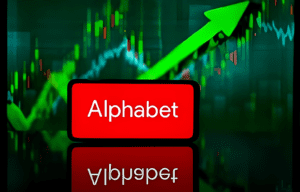Although Amazon, Microsoft, and Google guarantee protection for their consumers against intellectual property issues, the scope of their compensation is limited. In a multibillion-dollar wager on generative AI, the Big Tech companies are competing to provide new services, including chatbots and virtual assistants.
The largest cloud computing companies globally, which have introduced novel artificial intelligence tools for their corporate clientele, are providing insufficient protection against possible copyright violation lawsuits related to the technology.
Amazon, Microsoft, and Google are engaged in a multibillion-dollar competition to provide new services, including chatbots and virtual assistants. This competition depends on generative AI, which refers to systems capable of generating human-like text, images, and code within seconds.

AI models are “trained” using data obtained from the internet, including photographs and text. Consequently, there is fear regarding potential legal actions taken by rights holders, including media companies and image libraries, against third parties that utilize AI tools trained using their copyrighted data.
It has been guaranteed by the three largest providers of cloud computing to protect their business clients against these kinds of intellectual property claims. However, a review of the indemnity clauses released by the cloud computing providers reveals that the legal safeguards are restricted to the utilization of models that were created by Google, Amazon, and Microsoft or were developed under their supervision.
“The indemnities are quite a smart bit of business. ..and make people think, ‘I can use this without worrying,’” said Emory University law professor Matthew Sag.

However, Brenda Leong, a partner at Luminos Law, emphasized that it is “important for companies to understand that [the indemnities] are very narrowly focused and defined.” Microsoft, Amazon, and Google yet not comment on this.
Customers’ indemnities do not extend to the utilization of third-party models, including those created by Anthropic, an AI startup that has secured investments from Amazon and Google. Despite the availability of these tools for use on the platforms of the cloud companies, they still need to be covered.
Regarding Amazon, coverage is limited to content generated by its exclusive models, including Titan, in addition to a variety of AI applications developed by the company. Likewise, Microsoft’s protection is restricted to tools operating exclusively on its models and those created in collaboration with OpenAI, a startup with which it maintains a multibillion-dollar alliance.

“People needed those assurances to buy because they were hyper-aware of [the legal] risk,” said one IP attorney focusing on the matter.
In the meantime, the safety filters that the three cloud service providers have been integrating into their applications are designed to eliminate any potentially harmful content that is produced. The attorney stated that the technology groups were “more satisfied that instances of infringements would be very low” but did not wish to offer “unbounded” protection.
Although the indemnification policies disclosed by Alphabet, Amazon, and Microsoft are comparable, their clients may wish to negotiate more precise indemnities in contracts customized to their requirements, according to sources with knowledge of the cloud companies.

Prominent author and comedian Sarah Silverman has filed initial test cases against generative AI, among others, which OpenAI and Meta are among the companies opposing. The majority of their attention has been directed towards accusations that the companies responsible for developing the models used copyrighted material to train them.
Indemnities were provided to users who may have been concerned about the possibility of additional lawsuits as an extra layer of “security.” This was especially true given the “significant time required to resolve the test cases,” which created a period of “uncertainty,” according to Angela Dunning, a partner at the law firm Cleary Gottlieb.
However, unlike Microsoft, Google’s indemnity does not apply to models that have been “fine-tuned” by customers utilizing their internal company data. This practice enables organizations to train general models to generate more accurate and relevant outcomes.
Although Amazon provides coverage for Titan models that have undergone such customization, the protection is null and void if the alleged infringement can be attributed to the fine-tuning. Claims made against generative AI tool users instead of their creators can be difficult to succeed in court.
/cdn.vox-cdn.com/uploads/chorus_asset/file/23935561/acastro_STK103__04.jpg)
US Judge William Orrick, in denying a portion of a claim brought against AI companies Stability AI, DeviantArt, and Midjourney by three artists a year ago, stated that one “problem” was that it was “not plausible” that each image generated by the tools had relied on “copyrighted training images.”
Orrick stated that for copyright infringement to be established, it must be demonstrated that the AI-generated images are “substantially similar” to the copyrighted images.





